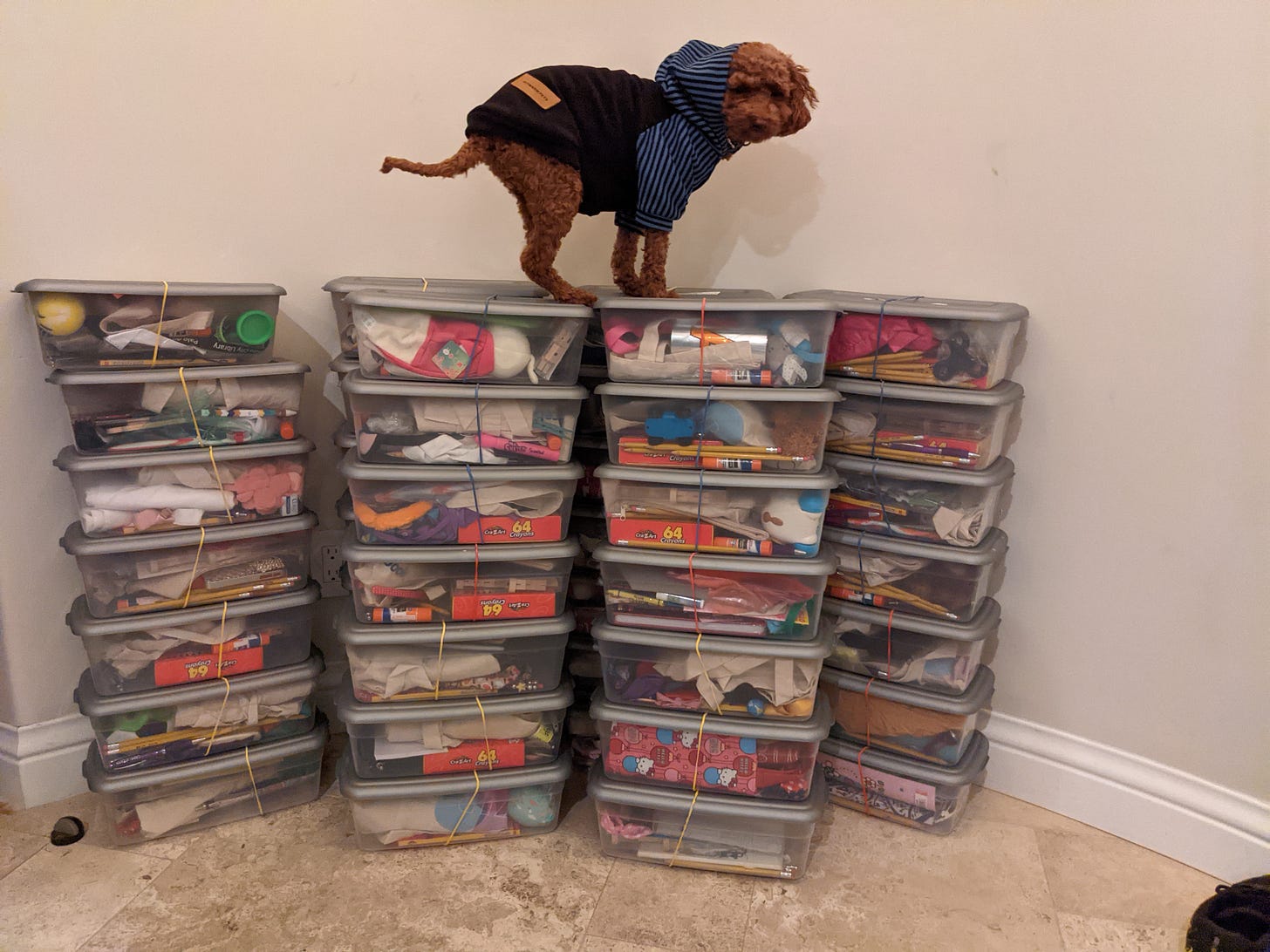Treating Life Debt Like Technical Debt
Addressing the family, home, and life debt to simplify your life
Many of us who work in the tech industry talk about a concept called technical debt. Initially, when you start a product, the code is simple and easy to understand. Over time, however, more people come aboard, each working to make the product do different things. As additional developers contribute more lines of code, the product becomes increasingly fragile and complex. Many companies, in an effort to ship more features for customers, keep adding, patching, and fixing. This works until you hit a wall.
A few weeks ago, I shared a post about word pictures. One of the quotes I included came from my time at PayPal.
“Our code is so intertwined that you flip a light switch on the fourth floor of Building 10, and a toilet flushes in Building 14.”
I intentionally didn't share the context of this quote because I wanted to see if any of my former colleagues recalled it. Many of them reached out and shared their own recollections of when we hit a wall at PayPal. There came a moment when our technical debt was so great that the VP of Engineering hung pages and pages of code over a stair railing to illustrate how complex things had gotten. They then contrasted this with a short page of replacement code. This code cleanup took time away from feature work, but it paid back over time because new functionality became easier to add and fewer QA checks were required to track down bugs.
This same concept is reflected in our lives. We accumulate family debt, household debt, and life debt that we don't fully pay off. These “debts” have real costs. These are not financial debts, but actually the accumulation of time we waste when better preparation, planning, and systems could save us in the long run. At some point, we risk hitting a wall. Things could become overwhelming causing it to come crashing over us like a tide.
Ancestry is giving all employees the last week of 2021 off. Unlike vacation time, which is taken asynchronously, we decided to largely close the offices in order to ensure that everyone could disconnect. When things are happening and decisions are being made while you and you alone are away, you feel left out of the loop, and that fear of missing out adds a layer of stress to your time off. You experience a feeling of dread when you come back and open your computer for the first time. A hundred emails await your attention, and having to play catch-up is an unwelcome way to return after time away.
I hope everyone will take this week to pay back some of the household debt in their lives.
Family debt
Like many, our family has been living in close quarters for more than 18 months now. In some ways, we should have the lowest family debt that we've ever had. However, as restrictions on travel have remained prolonged, we have had less ability to close the distance with our extended family. As a result, we’ve had to get creative about maintaining those connections.
Pay down your family debt by spending time with those you love. Go over old family photos and stories that you want to document. Capture videos of your grandparents answering questions from your kids. Create new memories you want to keep.
Each time we get together with my parents (now just my mom), my sister and her family, and my in-laws for the holidays, we have family photos taken. While candids from our phones are fine, we make it a point to invest in hiring a family photographer so that we have images from each year.
Time passes in a stream so quickly, and we often ask ourselves, “Where did the time go?” Take some time to record, document, and capture memories before you lose them.
Home Debt
When you’ve been in a house nearly 24/7 for over 18 months, it's easy to start ignoring the piles of tasks that have built up. David and I joke that we have “clutter blindness” because we are so used to walking past things that once would have bothered us.
We had crates and boxes of things that were unused and sometimes even unopened collecting dust. The kids and I decided to pack gift shoeboxes for those in need. Years of accumulated office and conference swag, gift bags from kid’s parties, and new toys and school supplies were organized in nearly 100 boxes and dropped off this week. This decluttered many areas of our home.
You may not have time to do a complete Marie Kondo-style fix of your entire house, but tackling a few key areas can actually save you time in the long run. Here are some easy first steps:
Go through your pantry and remove everything that's expired or that you no longer eat. Sorting through these things takes a few extra minutes each time you look for something and that adds up in the long run.
Pull everything out of your freezer, catalog it, and put it back. You will find, as I have, long-lost frozen foods from years past. Make a plan to use what you can, and discard freezer-burned or out-of-date items.
Clear out your medicine cabinet and discard expired medicine and old prescription pills. These can be a hazard to children and pets. Here's a link to find a place where you can safely discard expired medication.
Keep reading with a 7-day free trial
Subscribe to Perspectives to keep reading this post and get 7 days of free access to the full post archives.





